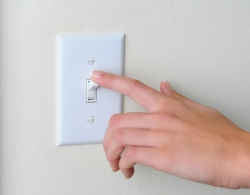One of the more contentious issues in tenancies is the paying of utilities, which includes water, refuse, sewerage and electricity.
 Rea says the most critical element in avoiding disputes is ensuring that the written lease between the landlord and tenant contains clear terms regarding who is responsible for the payment of utilities, and at what stage these will become due.
Rea says the most critical element in avoiding disputes is ensuring that the written lease between the landlord and tenant contains clear terms regarding who is responsible for the payment of utilities, and at what stage these will become due.This is according to Grant Rea, RE/MAX Living Rental Specialist, who says the most critical element in avoiding disputes and confusion is ensuring that the written lease between the landlord and tenant contains clear terms regarding who is responsible for the payment of utilities, and at what stage these will become due.
Once this has been established, Rea says the party responsible will need to abide by the agreement.
“Electricity has become costly, and it is vital that if the rental property is not fitted with a prepaid electricity dispenser that the landlord consider looking at this option,” he says.
“The challenge that we, as a rental agency, often come across is when the electricity account is one billed by the city of Cape Town, but the account is currently not in the name of the registered owner of the property.”
Historically, Rea says the tenant would register an account with the local municipality and be liable for this payment. However, it was found that often tenants would vacate the premises leaving these accounts unpaid, and the unsuspecting landlord would be left with the account.
“The disputes surrounding these issues have led municipalities not to allow the electricity account to be in the name of anyone other than the registered owner.”
Rea says that if the landlord has not been receiving the account and is unsure of whether it is being paid, it is recommended that they contact their municipality for a copy.
“Don’t simply take the tenant’s word that the account is being settled each month. It is highly advised that if the electricity account is in anyone else’s name, that the landlord should have this transferred into their name as the municipality will deem them liable regardless,” he says.
 “Electricity has become costly, and it is vital that if the rental property is not fitted with a prepaid electricity dispenser that the landlord consider looking at this option,” says Rea.
“Electricity has become costly, and it is vital that if the rental property is not fitted with a prepaid electricity dispenser that the landlord consider looking at this option,” says Rea.“It is also imperative that the landlord have accounts directed to either themselves or their rental agent to ensure timeous billing of the tenant.”
He says many municipalities offer a convenient e-billing option to receive invoices electronically. This makes it easier to forward these on to the tenant.
Adrian Goslett, CEO of RE/MAX of Southern Africa, echoes Rea’s words by saying that, ultimately, it is the landlord’s responsibility to ensure that all utility accounts are paid timeously.
While the tenant may reside in the property, Goslett says the landlord is the owner and this is therefore where the buck stops.
Rea says when handling the charging of utilities to the tenant, there are some things to remember:
1. The tenant is within their rights to have sight of original billings and utility readings.
2. It is advised that the landlord (or agent) invoice the tenant for their share of utility costs as agreed.
3. Very importantly, if the actual reading of a water or electricity meter cannot be made and substantiated, it may not be fair to charge the tenant an estimate, as this can result in disputes. Many Rental Housing Tribunal offices will frown upon such a practice.
4. Remember that if the account is in the landlord’s name, they are liable for payment. Non-payment of such accounts and consequent disconnection of services will render the landlord in breach of their tenancy agreement with the tenant.
5. It is worth noting that it is unlawful to disconnect the tenant’s services in light of their non-payment, even though cases exist where the courts have granted such a request where the landlord was significantly prejudiced, having to fund these services. Disconnection without a court order is unlawful.
6. It is prudent to provide a monthly statement to the tenant and keep a good written record of communications as it relates to the utilities.
7. At the termination of the lease agreement, it is reasonable to deduct any outstanding utilities from deposits held
Rea says that it is not recommended for landlords to rely on their tenants to attend to the payment of utilities and services as they often become tardy in this instance.
“Landlords should keep track of all utility accounts and ensure these accounts are kept up to date,” he says.








